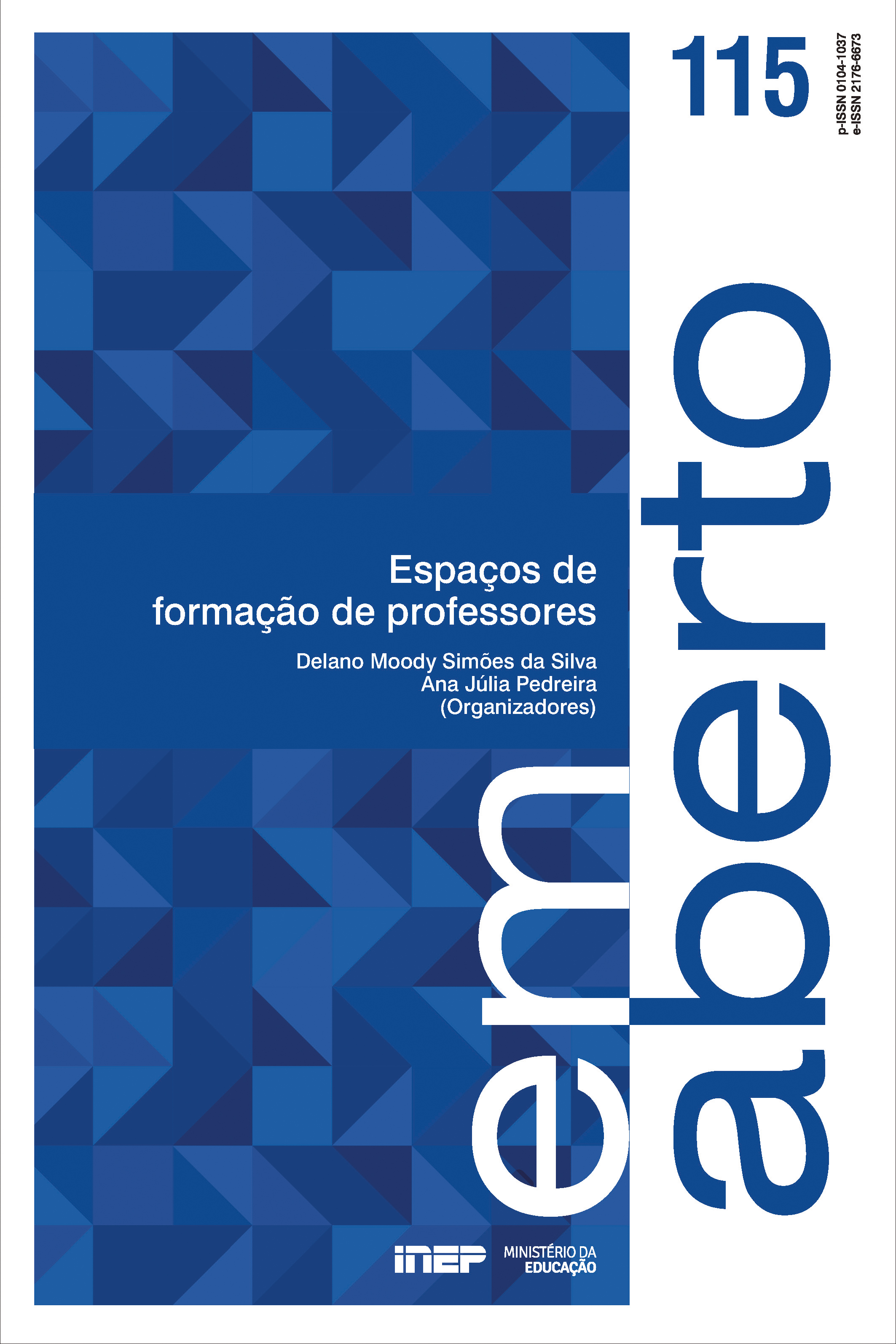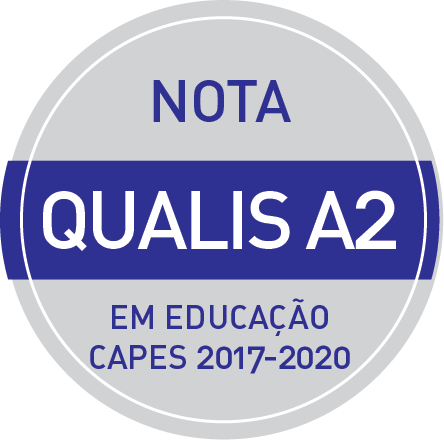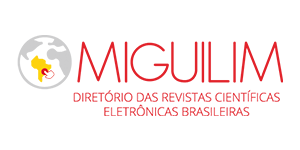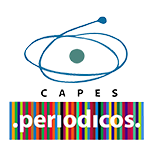Expansión de entornos de aprendizaje institucionalizados de/para la formación de profesores de ciencias: el caso de un jardín comunitario en Ottawa
Resumen
El objetivo del presente informe de experiencia es compartir y reflexionar sobre los puntos de vista y experiencias de los autores sobre la adopción de una pedagogía basada en el sitio, en un jardín comunitario, para crear un espacio de aprendizaje de ciencias dentro de un programa institucionalizado de formación de profesores de ciencias en Ottawa, Canadá. Los eventos descritos aquí se basan en recuerdos sueltos (autobiográficos) de situaciones que ocurrieron en los últimos cinco años en los cursos de métodos de ciencias realizados por el primer autor mientras llevaba a los profesores a una excursión por un jardín comunitario urbano local. Además, presentamos una muestra seleccionada de comentarios informales recogidos de los participantes, para respaldar nuestro argumento de que los espacios urbanos al aire libre no institucionalizados pueden ofrecer oportunidades valiosas para enriquecer la experiencia de los profesores estudiantes de ciencias en los programas de formación docente.
Descargas
Citas
BEAMES, S., HIGGINS, P.; NICOL, R. Learning outside the classroom: theory and guidelines for practice. London: Routledge, 2012.
BENTON-SHORT, L.; SHORT, J. R. Cities and nature. London: Routledge, 2013.
BODZIN, A. M.; KLEIN, B. S.; WEAVER, S. (Ed.). The inclusion of environmental education in science teacher education. Dordrecht: Springer, 2010.
BRITZMAN, D. Practice makes practice: a critical study of learning to teach. New York: SUNY Press, 2003.
BYRNE, T. V. Where the spirit lives: the history of St. Joseph’s Parish – 1856- 2006. Ottawa, 2007. Retrieved from: https://st-josephs.ca/wp/wp-content/uploads/2011/11/Where-the-Spirit-Lives1.pdf. Access in: 3 Jan. 2023.
CAPRA, F. The web of life: a new scientific understanding of living systems. New York: Anchor Books, 1997.
COLLINS, S. et al. What “ideas-about-science” should be taught in school science? A Delphi study of the expert community [Paper presentation].2001 Annual Conference of the American Educational Research Association, Seattle, USA, 2001 (April 10-14). Retrieved from: https://eprints.soton.ac.uk › aera_epse3_delphi.
CONROY, C. Reconciliation and the doctrine of creation. Critical Theology, [S.l.], v. 3, n. 2, p. 19-22, 2021.
DEWEY, J. Democracy and education: an introduction to the philosophy of education. [S.l.], 1916. Retrieved from: https://edtechbooks.org/democracyandeducation. Access in: 3 Jan. 2023.
FAZIO, X. Science learning with and in communities: engaging students through authentic community-based science. [S.l.], 2016. Retrieved from: https://www.edcan.ca/articles/science-learning-with-and-in-communities/#footnote-261-4. Access in: 3 Jan. 2023.
FLETCHER, T. Elementary physical education: fitness sessions or whole-child development? Canadian Journal for New Scholars in Education, [S.l.], v. 2, n. 1, p. 1-8, July 2009.
FRANCISCO (Papa). Carta encíclica: laudato si’ do santo padre Francisco sobre o cuidado da casa comum. 2015. Disponível em: https://www.vatican.va/content/francesco/pt/encyclicals/documents/papa-francesco_20150524_enciclica-laudatosi.html. Acesso em: 3 jan. 2023.
FULTON, L.; CAMPBELL, B. Science notebooks: writing about inquiry. [S.l.]: Heinemann, 2014.
GARDNER, G. E.; JONES, M. G.; FERZLI, M. Popular media in the biology classroom: viewing popular science skeptically. The American biology teacher. Oakland, v. 71, n. 6, p. 332-335, Aug. 2009.
GORDON, D. The concept of the hidden curriculum. Journal of Philosophy of Education, Oxford, v. 16, n. 2, p. 187-198, Dec. 1982.
GREENWOOD, D. A. A critical theory of place-conscious education. In: STEVENSON, R. B. et al. International handbook of research on environmental education. London: Routledge, 2013. p. 93-100.
HALUZA-DELAY, R. Educating for environmental justice. In: STEVENSON, R. B. et al. (Ed.). International handbook of research on environmental education. London: Routledge, 2013. p. 394-403.
JENSEN, D. The myth of human supremacy. New York: Seven Stories Press, 2016.
KARROW, D. D.; DIGIUSEPPE, M. (Ed.). Environmental and sustainability education in teacher education: canadian perspectives. [S.l.]: Springer, 2020.
LYSGAARD, J. A.; BENGTSSON, S.; LAUGESEN, M. H. L. Dark pedagogy: education, horror and the Anthropocene. [S.l.]: Palgrave Macmillan, 2019.
MARTUSEWICZ, R. A. A pedagogy of responsibility: Wendel Berry for ecojustice education. New York: Routledge, 2019.
McMURTRY, A.; REIS, G. The ecology of teaching & learning (science). Revista Multidisciplinar, [S.l.], v. 1, n. 1, p. 5-16, 2019.
METZ, K. Rethinking what is “developmentally appropriate” from a learning progression perspective: The power and the challenge. Review of Science, Mathematics and ICT Education, Patras, v. 3, n. 1, p. 5-22, 2009.
MILBOURNE, P. Everyday (in)justices and ordinary environmentalisms: community gardening in disadvantaged urban neighbourhoods. Local Environment, London, v. 17, n. 9, p. 943-957, 2012.
ONTARIO. Ministry of Education. Science: grade 9. 2022. Retrieved from: https://www.dcp.edu.gov.on.ca/en/curriculum/secondary-science/courses/snc1w/program.
ORR, D. What is education for? Six myths about the foundations of modern education, and six new principles to replace them. [S.l.], 1991. Retrieved from: https://www.context.org/iclib/ic27/orr/. Access in: 3 Jan. 2023.
OSBORNE, J. et al. What should we teach about science? A Delphi study. London: King’s College, 2001.
PHELPS, N. Infinite ethics: An inclusive vision for a diverse world. In: NOCELLA, II, A.; BENTLEY, J.; DUNCAN, J. (Eds.). Earth, animal and disability liberation: the rise of the eco-ability movement. New York: Peter Lang, 2012. p. 205-222.
PLUMWOOD, V. Environmental culture: the ecological crisis of reason. London: Routledge, 2002.
PURCELL, M.; TYMAN, S. K. Cultivating food as a right to the city. Local Environment, London, v. 20, n. 10, p. 1132-1147, 2015.
RAPHAEL, D. Poverty in Canada: implications for health and quality of life. Toronto: Canadian Scholars, 2020.
REIS, G. Making science relevant: conceptual change and the politics of science education. In: ROTH, W. M. (Ed.). Re/structuring science education: reuniting sociological and psychological perspectives. Dordrecht: Springer, 2010. p. 233-241. (Cultural Studies of Science Education, 2).
REIS, G. A educação salva? Provocações, inquietações e possibilidades profissionais. In: SILVA, D. M. S. (Org.). Quem é o/a licenciado/a em ciências naturais/da natureza? Perspectivas profissionais. Campos dos Goytacazes: Brasil Multicultural, 2019. p. 10-17. (Coletânea de textos do III Concinat).
REIS, G.; GUIMARAES-IOSIF, R.; REIS, J. Media and environmental literacy: Making school relevant. Revista Txt: leituras transdisciplinares de telas e textos, Belo Horizonte, v. 5, n. 9, p. 26-40, 2009.
REIS, G.; SCOTT, J. (Ed.). International perspectives on the theory and practice of environmental education: a reader. [S.l.]: Springer, 2018.
ROTH, W. M. et al. Authentic science revisited: in praise of diversity, heterogeneity, hybridity. [S.l.]: Sense Publishers, 2008.
SCHELL, C. J. et al. The ecological and evolutionary consequences of systemic racism in urban environments. Science, New York, v. 369, n. 6510, eaay4497, Sep. 2020.
SINGH, D. Hope for the science education of youth involved with the justice system. 2021, 227f. Thesis (Doctorate in Philosophy Degree in Education) – Faculty of Education, University of Ottawa, Ottawa, 2021.
SMITH, G. A. Place-based education: practice and impacts. In: STEVENSON, R. B. et al. (Ed.). International handbook of research on environmental education. London: Routledge, 2013. p. 213-220.
SOBEL, D. Mapmaking with children: sense of place education for the elementary years. [S.l.]: Heinemman, 1998.
SORENSON, J. Critical animal studies: thinking the unthinkable. Toronto: Canadian Scholars’ Press, 2014.
SZTYBEL, D. Animals as persons. In: CASTRICANO, J. (Ed.). Animal subjects: an ethical reader in a posthuman world. Waterloo, CA: Wilfrid Laurier University Press, 2008. p. 241-257.
THÉBAUD, S.; CHARLES, M. Segregation, stereotypes, and STEM. Social Sciences, Basel, v. 7, n. 7, 2018. Retrieved from: https://doi.org/10.3390/socsci7070111. Access in: 27 Jan. 2023.
SOCIAL dilemma, The [film]. Director Jeff Orlowski. Exposure Labs, Argent Pictures, and The Space Program. 2020.
TOLMAN, J. Teaching our cities: place-based education in an urban environment. In: SEYDEL, J. et al. (Ed.). Trailblazers for whole school sustainability: case studies of educators in action. New York: Routledge, 2022. p. 38-51.
WAKEFIELD, S. et al. Growing urban health: community gardening in South-East Toronto. Health Promotion International, Oxford, v. 22, n. 2, p. 92-101, Feb. 2007.
WALTER, P. Theorising community gardens as pedagogical sites in the food movement. Environmental Education Research, London, v. 19, n. 4, p. 521-539, 2013.
WILSON, E. The creation: an appeal to save life on earth. New York: Norton, 2006.
ZUBOFF, S. The age of surveillance capitalism: the fight for a human future at the new frontier of power. [S.l.]: PublicAffairs, 2019.

Esta obra está bajo licencia internacional Creative Commons Reconocimiento-NoComercial 4.0.
Aquí están los términos de la asignación de derechos de autor:
- Declaro que cedo permanentemente al Instituto Nacional de Estudios e Investigaciones Educativas (INEP) los derechos relacionados con:
- edición, publicación, reproducción y distribución de la obra;
- distribución en medios digitales o electrónicos;
- traducción de la obra a cualquier idioma;
- actualización, reimprensión, adaptación y compactación del trabajo;
- inclusión en el ambiente de publicación de la página del INEP;
- la difusión a través de la red mundial (internet), tanto en Brasil como en el extranjero, de todo o parte del trabajo;
- autorización a terceros para realizar cualquiera de los actos enumerados en los párrafos anteriores.
- Declaro expresamente que las opiniones expresadas en el trabajo son de mi exclusiva responsabilidad y que la publicación del trabajo no viola los derechos de terceros.
- Declaro que la preparación del trabajo antes mencionado tiene un carácter público pro bono y, por lo tanto, renuncio a la recepción de cualquier remuneración pertinente a los derechos patrimoniales ahora asignados.
- Autorizo la revisión gramatical y ortográfica del texto, siempre que no altere el contenido y las opiniones que contiene.












